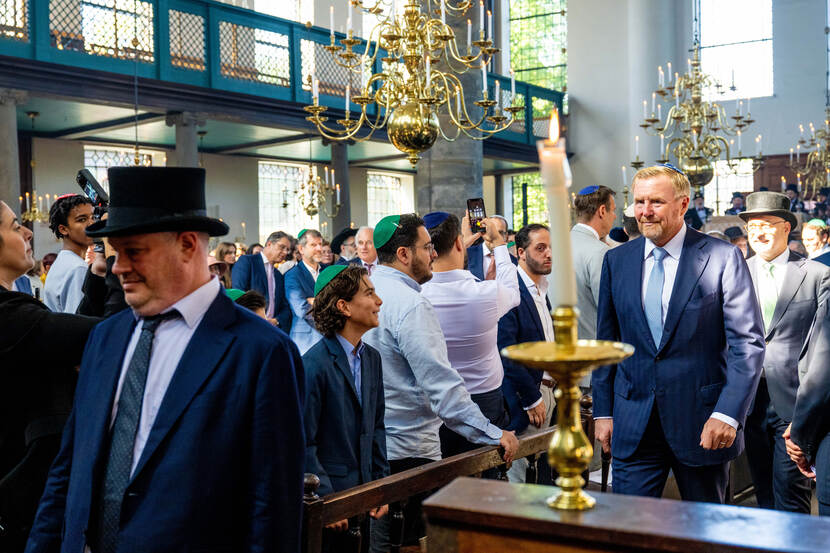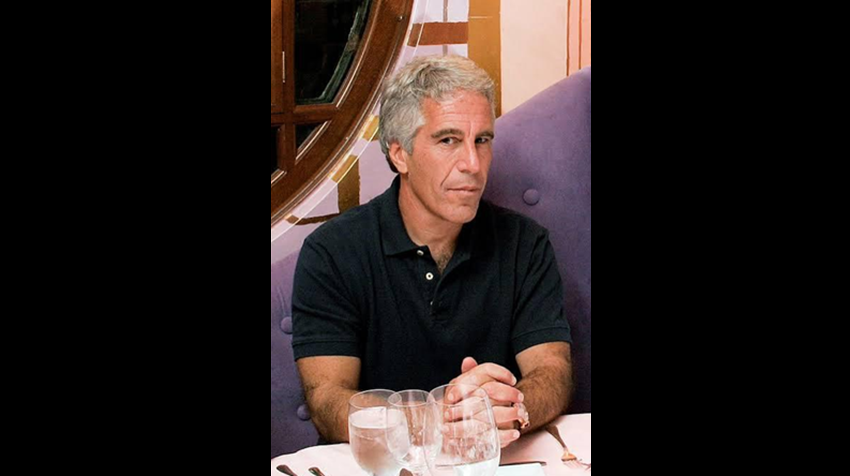Dutch King Willem Alexander enters the Esnoga synagogue. Photo ©Mischa Schoemaker/Dutch Royal House
The historic Portuguese Synagogue in Amsterdam celebrated its 350th anniversary this Sunday, September 7, in a solemn ceremony attended by King Willem-Alexander of the Netherlands. King Willem-Alexander had already visited the synagogue in December 2024, in the presence of Marcelo Rebelo de Sousa, President of Portugal.
Around 400 members of the Dutch Jewish community took part in the event, which included a prayer in Hebrew and Dutch, asking for peace and the safety of IDF soldiers. After the celebration, the king spoke with the chief rabbi, the rabbi, and members of the congregation about the history of the community and the synagogue.
Inaugurated in 1675, the synagogue — also known as “Esnoga” or “Snoge”, referring to the word “synagogue” in Ladino — is a symbol of the Spanish and Portuguese Jewish diaspora, which found refuge in the Netherlands after the expulsion of Jews from the Iberian Peninsula. Located in Amsterdam’s historic Jewish quarter, the building was at the time the largest synagogue in the world.
During the ceremony, David Samama, president of the local Jewish community, highlighted the historical and cultural significance of the synagogue: "Snoge is not just a building; it is a soul, a breath of centuries, a symbol of indestructible hope. It is a testament to resilience, faith, and community spirit. Living proof that Jewish life in the Netherlands has not only survived but flourished and is being passed down from generation to generation."
The architectural design of the synagogue was inspired by King Solomon’s Temple, and the Torah ark is carved from solid jacaranda wood, a Brazilian wood that evokes the era of great navigations. The building remains carefully preserved, keeping as close as possible to its original structure and without electricity, illuminated by hundreds of candles that create a unique atmosphere. Today, the synagogue continues to serve both as a place of worship and as an important tourist attraction.


































